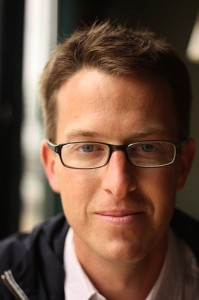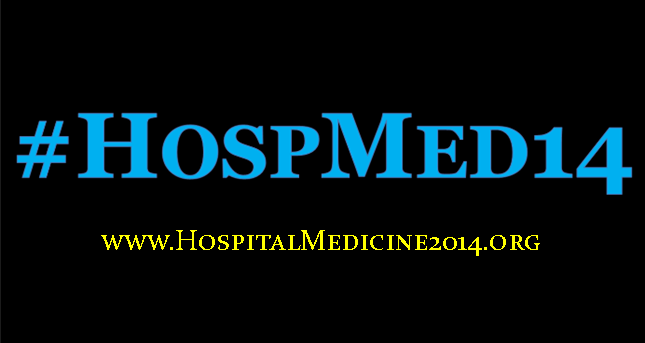by Patrick Kneeland, MD and Read Pierce, MD
Pop quiz! What is the name of the first person to run a four minute mile?
Think you’ve got the answer?
Okay. That was just a warm-up. Here’s the bonus question: What is the name of the person who coached the first person to run a four minute mile?
A little tougher, but Franz Stampfl had a lot to do with the feat. He was adept at utilizing his methods to coach numerous athletes, including Roger Bannister (the first to break the 4 minute mile), Olympic gold medalists, and successful boxers. You may not recognize Stampfl’s name because he remarkably shunned the Bannister limelight, preferring to slip away quietly and get back to London to train other athletes.
The take-home point is this: behind every great athletic achievement is a great story of hard work, successes, failures, perseverance, and luck. Behind that storyline, there’s always a great coach.
The trajectory of hospital medicine looks a lot like Roger Bannister’s run, from underdog/outsider just a few years ago to well-advertised international success with lots of perks and adulation. But what’s hospital medicine’s hidden coaching story? Turns out, there isn’t much of one. While hospital medicine has enjoyed a great ride, as a field, we have often failed to leverage the power of effective coaching. Physicians historically have embraced a performance plateau when they finish training as Atul Gawande highlights in his most beguiling New Yorker installment yet.
If the world’s best athletes, musicians, actors, and even CEOs have coaches, why don’t hospitalists?
Done with Training
On any given weekday in the academic year, you might find a resident in our office wanting career advice as s/he “finishes training.” Just this week, we met with a third year resident, who was thinking of taking a job at our hospital. “Three years of residency is just a drop in the bucket,” she said. “I want a place that has infrastructure to help me keep learning.” Think of what this means; she already has a college degree, four years of medical school, and experienced an anguishing match process and the grindstone of residency. All along the way, future physicians have frequent, iterative feedback on their performance and advice about the next milestones. Suddenly, residency is over, and, as they look forward to life after training and “the real world,” the game is different and there’s no structure. People will still grow, but they are “done with training,” without a clear path of how to get to the next level or who will help guide them there.
Practice
As hospitalists, we both “practice” medicine, and we think the fact that we are said to be “practicing” is intriguing. To “practice” implies that being a part of medicine means something more than unleashing one’s “done with training” stamp on the world until retirement. It implies volition, an act of engaging in improvement that is more than passively accumulating experience. Further improvement might be summoned from self-discipline — things like reading more, signing up for webinars, going to conferences, or taking on a teaching gig to stay up-to-date. But that approach has its limits, just as disciplined individual training for a 5K is not likely to land one in the Olympics. Roger Bannister could have, and likely did, practice by himself, but it was only with a coach — a human mirror of performance and possibility — that he was able to achieve greatness.
Coaching in Hospital Medicine
If we start with the premise that other professionals benefit from coaching, why not hospitalists?, a number of subsequent questions arise:
• What is coaching?
• Is it different than teaching or mentoring?
• In a world where hospitalists have the potential to take on roles as diverse as seeing 18 complex patients a day, leading system quality improvement efforts, and developing healthcare policy, where should coaching focus? (In our professional careers since residency we have sought out coaching in areas as diverse as communication with patients, managing high-stakes conflict, teaching large and small groups, strategic planning, and running effective meetings.)
• Why should hospitalists seek out coaching? How? From whom?
• And, existentially, what motivates people to improve?
We’ll cover all of this and more at our Hospital Medicine 2014 workshop on coaching for hospitalists. We look forward to engaging in lively discussion and sharing strategies for incorporating coaching (as a coach and as one being coached) into your day-to-day work — no matter what that day looks like. See you in next week!
 Patrick Kneeland, MD completed residency and an academic hospital medicine fellowship at University California San Francisco before becoming Director of Patient Safety and Experience at the University of Colorado Hospital Medicine Group. He is on faculty for the Institute for Healthcare Quality, Safety, and Efficiency and regularly facilitates workshops aimed at driving transformative change in healthcare. You can follow Dr. Kneeland on Twitter: @patrickkneeland.
Patrick Kneeland, MD completed residency and an academic hospital medicine fellowship at University California San Francisco before becoming Director of Patient Safety and Experience at the University of Colorado Hospital Medicine Group. He is on faculty for the Institute for Healthcare Quality, Safety, and Efficiency and regularly facilitates workshops aimed at driving transformative change in healthcare. You can follow Dr. Kneeland on Twitter: @patrickkneeland.
 Read Pierce, MD is Associate Director of the Institute for Healthcare Quality, Safety, and Efficiency at University of Colorado. He has advanced training from University California San Francisco and Intermountain Healthcare in education, systems improvement, and leadership, and teaches leadership, Quality Improvement, and organizational transformation for healthcare professionals across the nation.
Read Pierce, MD is Associate Director of the Institute for Healthcare Quality, Safety, and Efficiency at University of Colorado. He has advanced training from University California San Francisco and Intermountain Healthcare in education, systems improvement, and leadership, and teaches leadership, Quality Improvement, and organizational transformation for healthcare professionals across the nation.



Leave A Comment